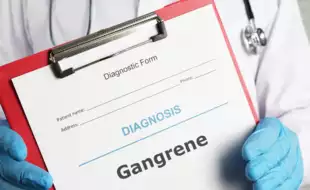Study Finds Psychedelic Therapy Promising For Treating Eating Disorder, Anorexia Nervosa
Nov 09, 2024
News

Psychedelic Therapy Can Be Beneficial For Treating Anorexia Nervosa
Photo : iStock
A recent study found that psilocybin therapy which is used to treat a range of mental health conditions, such as depression, anxiety and addictions can help in the treatment of people with an eating disorder, anorexia nervosa. The study was published in the journal Psychedelics.
Anorexia nervosa is a serious eating disorder which is characterised by an intense fear of gaining weight. This causes people to restrict their food intake severely and often engage in excessive exercise. People with this form of eating disorder usually have a distorted body image wherein they see themselves as overweight even when they are dangerously thin.
This disorder can lead to severe health complications, including malnutrition, weakened bones, heart issues and in extreme cases, death. Anorexia nervosa affects both physical and mental health, along with other conditions like depression and anxiety.
Psychedelic therapy is a mental health treatment that uses psychedelic substances, such as psilocybin (found in magic mushrooms) and MDMA for therapeutic breakthroughs in people with mental health disorders. When combined with psychotherapy, these substances can help patients process traumatic memories, gain new perspectives, and reduce symptoms of conditions like depression, anxiety, PTSD and addiction.
Though this form of therapy is largely experimental and strictly regulated, there is growing research on it benefits and how it can be used to treat mental health issues.
Dr Stephanie Knatz Peck at the University of California, San Diego in the US and lead author said, “Our findings suggest that psilocybin may be helpful in supporting meaningful psychological change in a subset of people with anorexia nervosa.”
For the study, the researchers used a single 25mg dose of psilocybin combined with specialised psychological support before, during, and after administration.
The results showed “that 60 per cent of participants reported a reduction” in the way they saw their physical appearance. About 70 per cent showed improvements in quality of life and shifts in personal identity, while 40 per cent reported clinically significant reductions in eating disorder psychopathology.
Although treatment effects were most pronounced in shape and weight concerns, the changes in psychological outlook didn’t automatically translate to weight restoration, said the team.
While the results show promise, the researchers also highlight the complexity of treating anorexia nervosa. The team suggested a comprehensive treatment approach using psychedelic therapy may be better than using it as a standalone intervention.
Dr Walter H. Kaye, director of the UCSD Eating Disorders Treatment Center, stressed the need for larger, well-controlled studies that include brain imaging and genetic analysis to better understand who might benefit most from this novel treatment approach. The findings open new avenues for research into personalised medicine approaches for eating disorders, while also raising important questions about how to optimise therapeutic protocols for this vulnerable population.
(With inputs from IANS)
Get Latest News Live on Times Now along with Breaking News and Top Headlines from Mental Health, Health and around the world.



